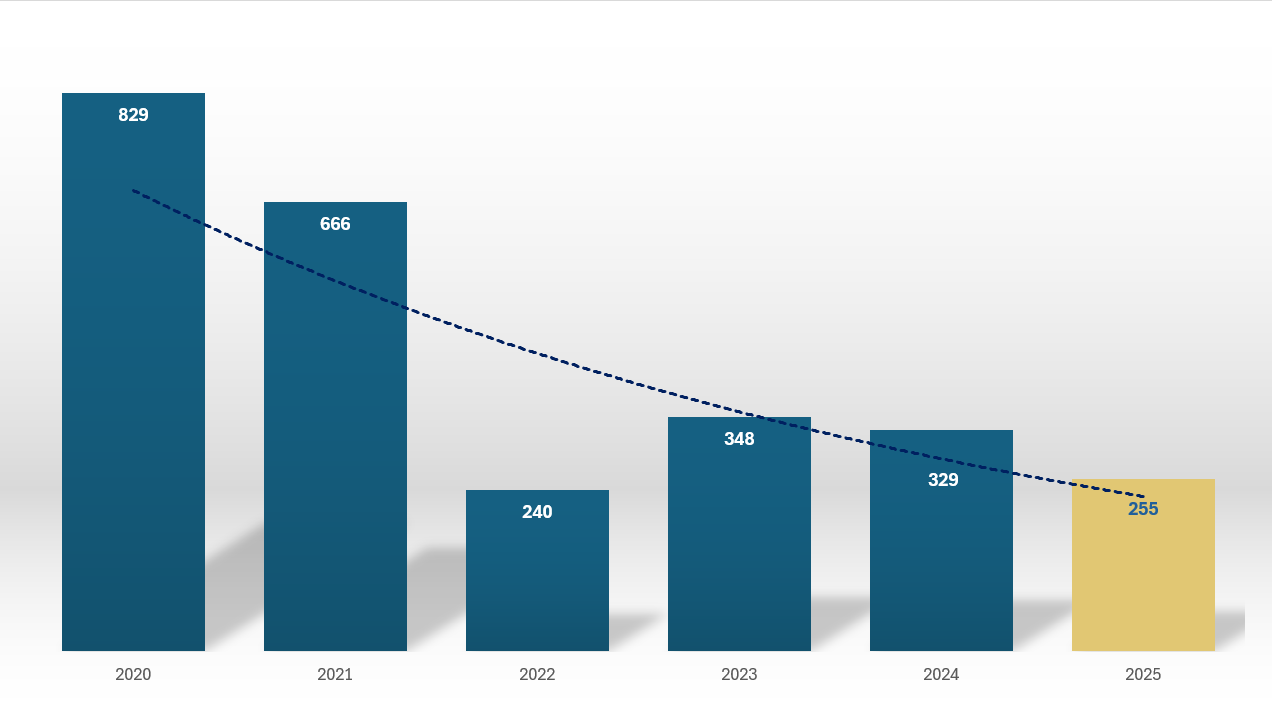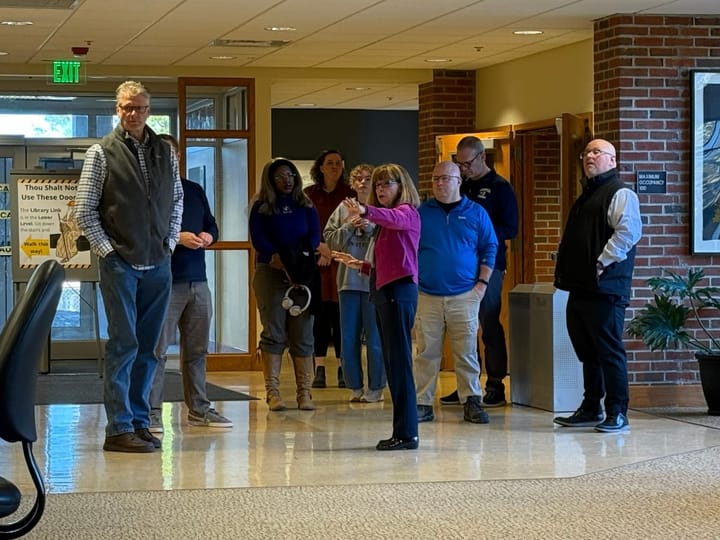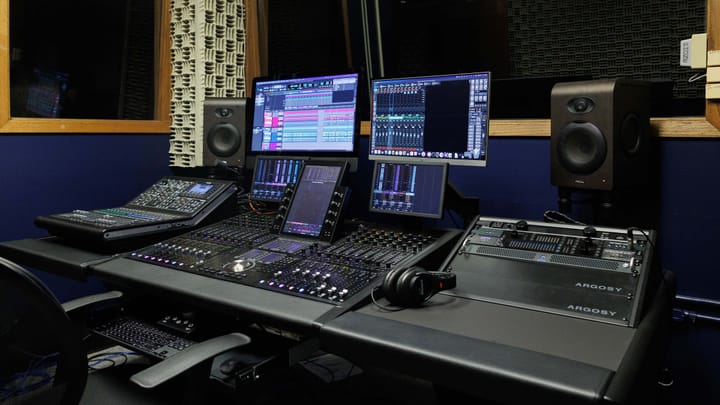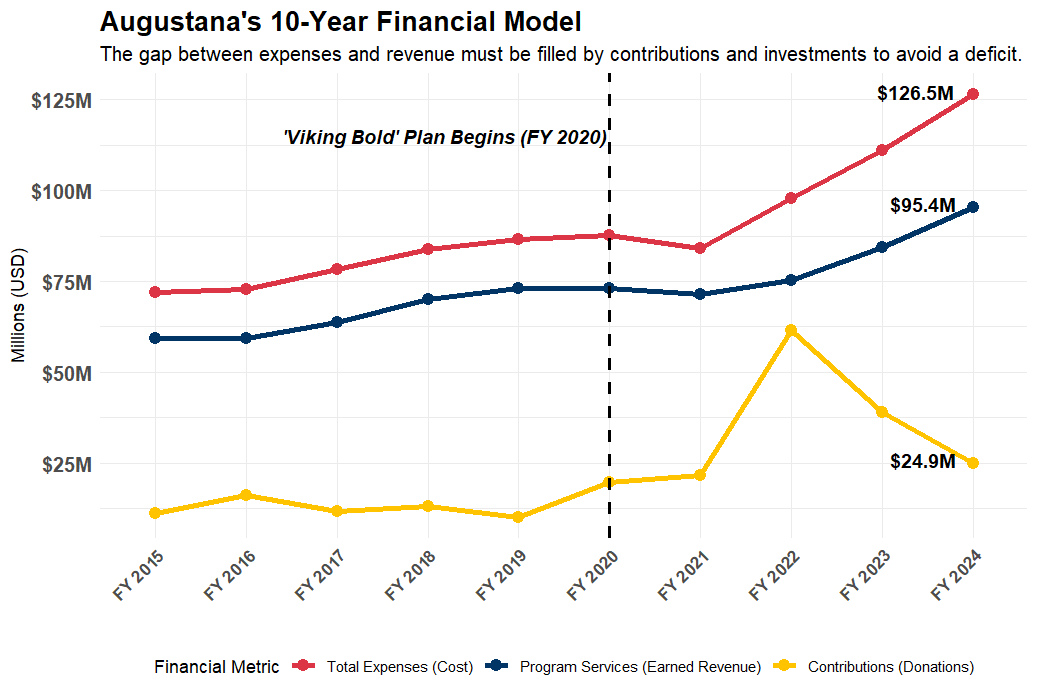ASA student voting participation down 70% in five years

Over the past five years, the Augustana Student Association (ASA) election voter turnout has dropped by roughly 70%.
In the most recent elections this March, 255 ballots were cast, compared to 329 in 2024.
Additionally, of the six races, only three were contested. According to the 2025 Spring Election Debrief, candidates for ASA president, vice president, secretary and fourth-year senators all won their elections by default.
“It’s disheartening to see our voter turnout decline substantially, and I really did not predict this election cycle’s turnout to be so dismal as compared to previous elections,” ASA President
Annie Johnston said.
Johnston noted that voter turnout suffers when races are uncontested and that the timing of the elections, which took place near midterms and spring break, may have also been a factor.
President Stephanie Herseth Sandlin said that the current decline in voter turnout and competitive elections may be representative of a broader student engagement issue following the COVID pandemic.
“You put that on top of very divisive national politics,” Herseth Sandlin said, “And people who aren’t actively engaged in politics and maybe didn’t have that socialization in their younger years may look at what is going on broadly and say, ‘I don’t know that I want to be part of something that’s so divisive.’”
After suggesting the lingering effects of a global pandemic and consequences of a tumultuous political environment as two possible reasons for the recent decline in engagement, Herseth Sandlin added that the Augustana community has an opportunity to serve as a model for productive political discourse in this context. She pointed out that contested elections are not designed to cause division but to present varying perspectives on student representation.
“You don’t have to model what’s going on at a state or national level. This is our opportunity as citizens in this ecosystem to engage in the debate around ideas,” Herseth Sandlin said. “And I think there’s some work to do there.”
Johnston echoed Herseth Sandlin’s sentiments and said she believes that coming to college is about “becoming an engaged and responsible citizen” in participatory ways like voting — in her opinion, a part of the university experience that is as important as academics.
In a document presented to the Senate, Technical Director and Election Commissioner Blen Lemma attributed the decline to reduced incentives to vote compared to previous years. She suggested that the turnout in 2024 was buoyed by voter incentives, such as textbook vouchers and credits for the ride-sharing app Lyft, though voter turnout in 2024 was lower than in 2023.
Lemma said she believed including photos of the candidates on student ballots would increase voter turnout and “lead to more conscious voting styles” from students.
The current voting system on Viking Central does not allow for candidate photos, but the Election Infrastructure Reform Fellowship, a group of students selected by the Senate, is in the process of creating a new voting platform intended to reduce inefficiencies and extra costs associated with the current system. The Fellowship presented its preliminary findings to the Senate on March 23 and is set to finish the transition by the end of the semester.
Despite low voter turnout, Lemma was optimistic about the most recent elections.
“Overall, the election climate was positive, and we saw good sportsmanship from the candidates,” Lemma said.
Newly elected ASA Vice President Maggie McKeown said that she and her running-mate — ASA President Igen Nyawanda — feel prepared for their new role, despite both new elects being freshmen.
“While Igen and I both might be relatively new students to Augie, we both have been involved with Augie in the past, whether it’s volunteering at Augie Kids Rec[reation] Camp or alumni events for our parents,” McKeown said. “So our knowledge and passion for the Augustana community runs deep.”
Nyawanda and McKeown call their plan for next year their Three Pillars: Timeless Values, Viking Spirit and Efficiency. Timeless Values asks ASA to create panels and offer prizes, thereby enhancing engagement at events. The panels will also address current campus trouble points by unifying different cultures on campus through partnerships, including supporting communities outside of the U.S. through study-abroad programs, supporting communities locally with service-based organizations like SALT and expanding eco-friendly initiatives.
The Viking Spirit pillar involves partnering and collaborating with athletics, the arts and humanities, and the Union Board of Governors (UBG), as well as supporting the Elmen Center with Late Night, intramural and fitness class events. ASA plans to partner with these organizations to further increase student engagement.
Nyawanda and McKeown’s last pillar is Efficiency, which seeks to support initiatives on campus by working with local business sponsors; encouraging and supporting senators to actively pursue their goals; increasing club engagement through UBG funding, partnerships and financial support; and ensuring that ASA initiatives are impactful and bring about real change. Finally, ASA plans to expand ASA news coverage and improve communication through journalistic initiatives in an effort to increase transparency and recognition.
Nyawanda expressed that with the three pillars, it will help improve voter turnout as well as increase student engagement.
“If we bridge the gap between people not knowing what ASA is about, then they can become more involved and be more passionate about the work we do, because it affects them,” Nyawanda said. “If we make sure what we’re doing next year is focused on just bring[ing] back the Viking Spirit as a whole, I think we’ll see that turnout increase next year.”



